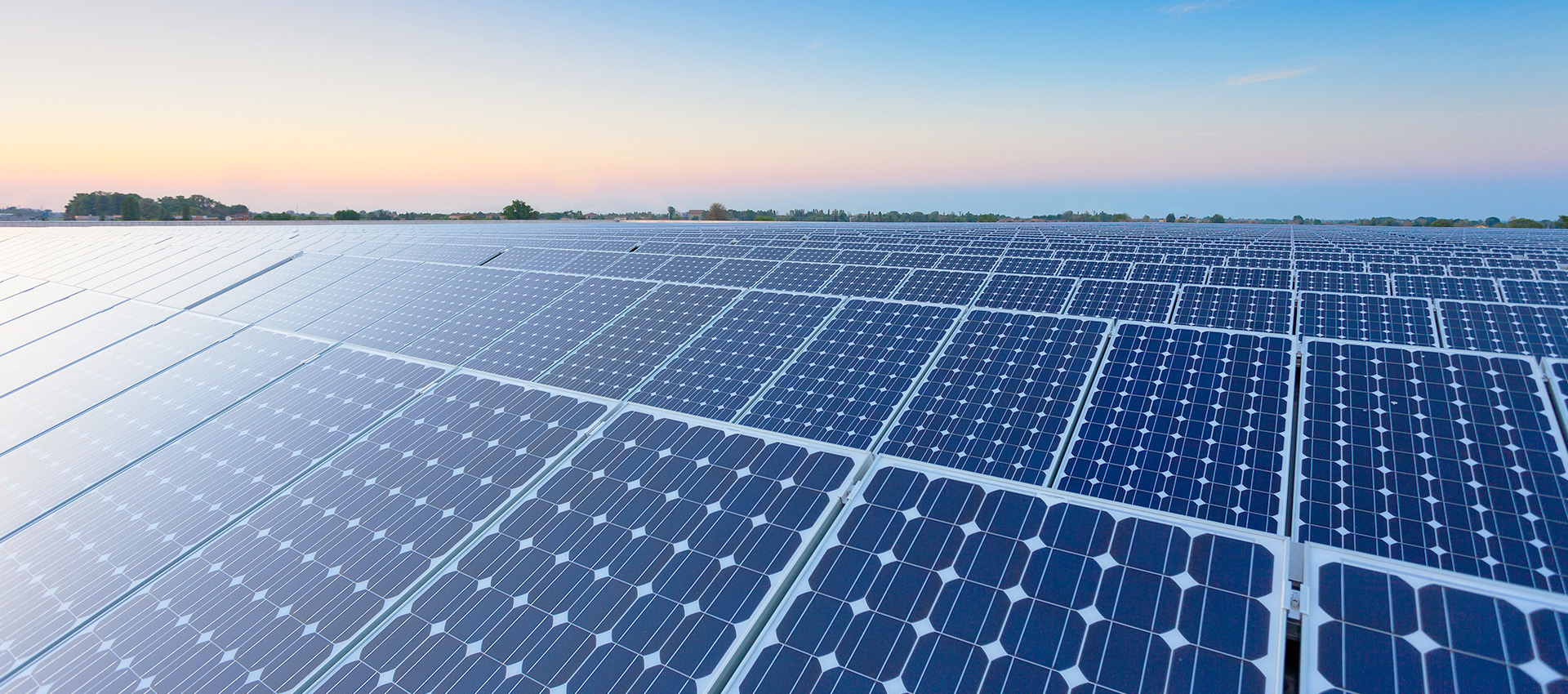
What are the different types of ground mounted solar racking systems?
2023-12-05One of the largest areas of innovation in solar energy involves solar mounting systems.Solar mounting systems are an important part of solar panels - they attach solar panels to the roof or the ground.
Traditional ground mounted systems

Ground-mounted solar systems basically all work the same way, with the system anchored to the ground and housing a large number of stacked panels. Two rails typically support each panel, whether horizontally or vertically. Since there are many different types of foundations, anchoring to the ground is the most difficult part of these installations.
If there is no debris in the soil, drive the steel beams into the ground and attach a racking system to the beams. If ground conditions are not suitable for smoothly driven beams, anchoring systems - screw piles, ground screws can be used.
Ground mounted systems do not always have to be driven into the ground. Capped landfills and other brownfields are ideal for solar panels because they are underutilized land resources and their climatic conditions will not be disturbed. Arrays can be ballasted to the ground like a flat roof. Concrete blocks hold the system in place, and if ground conditions can handle the weight of a concrete truck, cast-in-place blocks may be an easier option for installers.
Solar tracking systems
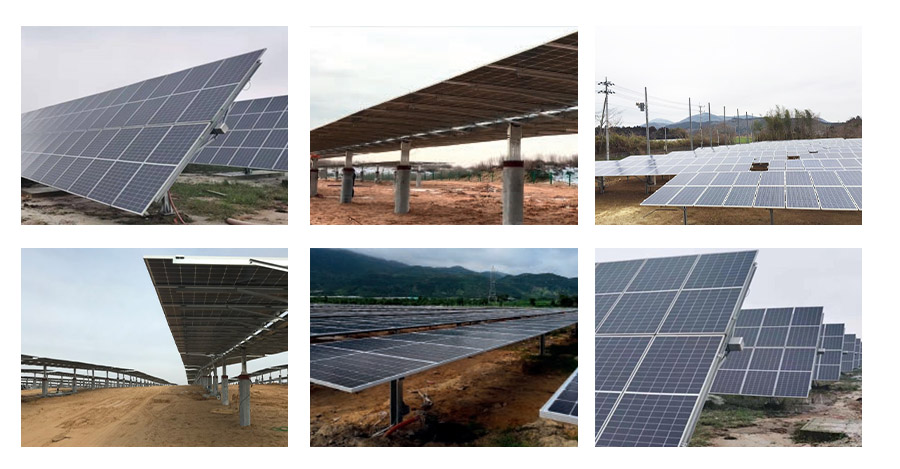
Tracking System Motorized ground mounts track the sun throughout the day, ensuring the panels are always facing the sun. Panels are attached to a shelf table similar to traditional floor mounting, usually bolted or clamped in place.
The two main classifications of tracking systems are single-axis and dual-axis. A single-axis tracking system spans long rows of panels, following the sun from east to west. A dual-axis tracking system separates the panels and follows the sun on a more circular path for optimal energy output.
The tracking system has two motor differences. Centralized trackers use a single motor to move multiple rows of panels. Distributed trackers use one motor per row or tabletop board. Centralized systems use fewer motors, while distributed systems use many.
Carports and canopies
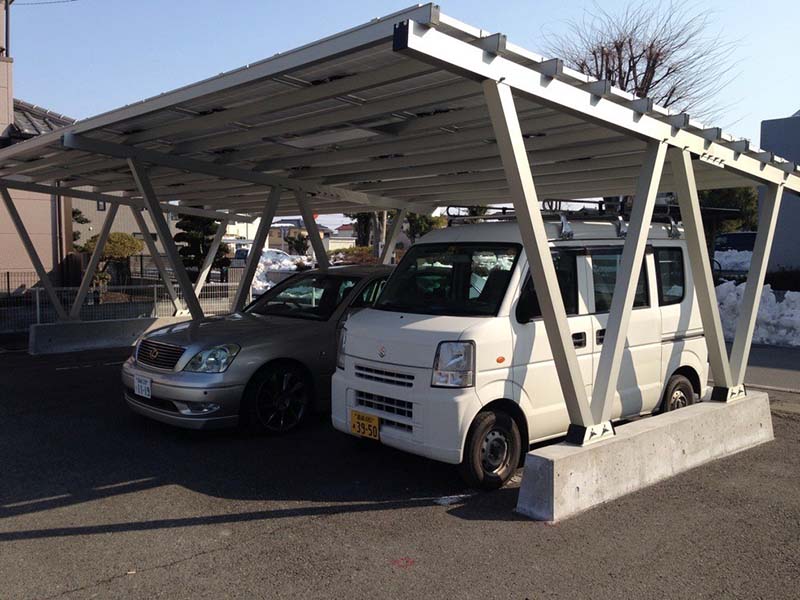
Solar carports and canopies can be considered very high ground mounts. They are very common in business environments. A reinforced concrete foundation supports large steel beams that support the solar panels. Carports can be designed to cover a row of parking spaces, span two rows or be as large as the project requires. Many carports can be equipped with electric vehicle charging stations to provide charging capabilities for cars parked below.
solar farm
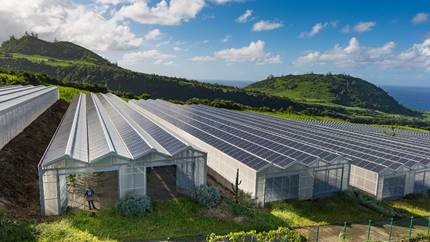
Solar farms is a comprehensive system project that uses the roof of the agricultural to generate solar power and develops efficient ecological agriculture. The high-efficiency ecological photovoltaic agricultural greenhouse project does not occupy additional arable land and realizes the value-added of the original land. The agricultural photovoltaic project combines ecological agriculture and green power generation to maximize the use of resources, and achieves energy conservation and emission reduction while obtaining the economic benefits of efficient agriculture and green power generation Social benefits.
Floating solar systems
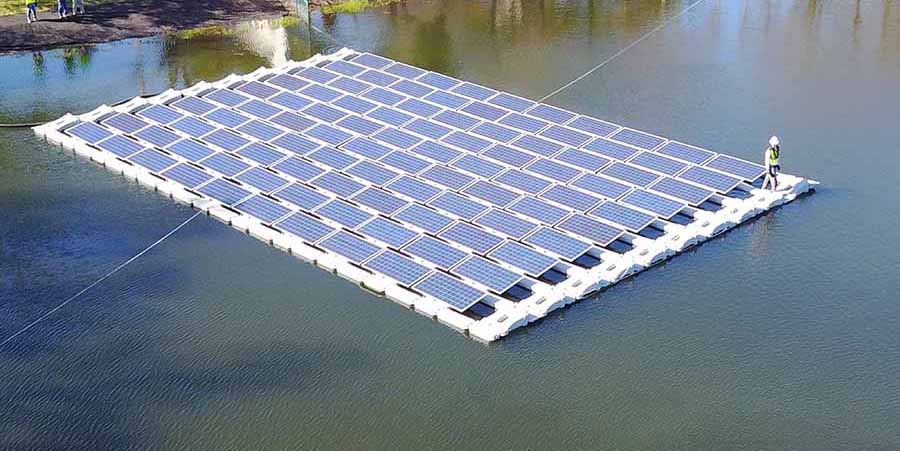
Floatovoltaics -- solar arrays that float on water -- are already in practice in parts of Asia and Europe, and are starting to make their way into the United States. Many reservoirs and water treatment facilities can benefit from leasing their water surface to solar developers. Although not really anchored to the ground, floating solar arrays still borrow properties from ground-mounted solar power.
The floating system is made of a plastic that joins together to form a cushion. Each individual float is moulded into a sloping design so the panels are positioned similarly to systems on flat roofs. Floating systems can often be assembled on land and then pushed out to the water as more panels are added. The system is either fixed on shore supports or floating anchors.
